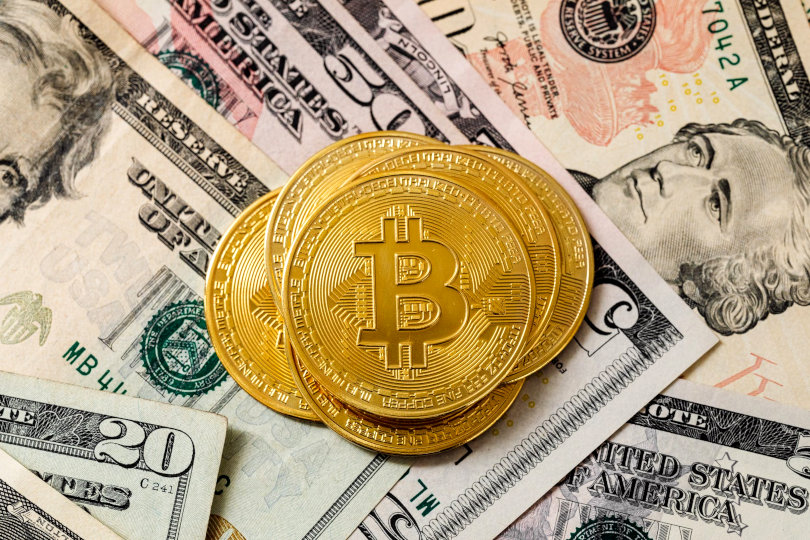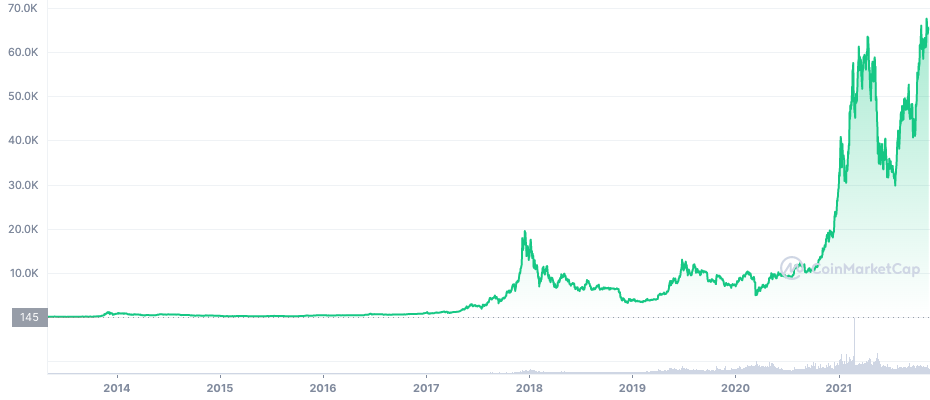“We invented money and we use it, yet we cannot…understand its laws or control its actions. It has a life of its own.” – Lionel Trilling.
The answer to the title question is obvious to those of you who understand how currency works, but you stopped in to read this because you love reading everything and anything you can about cash, and understand that you can never know too much, right?
Those of you who understand nothing about money, other than it comes in the form of paper or coins and that you (really) like it, will definitely learn a thing or two in the following paragraphs.

Let’s start by changing the way you think about paper currency…
Essentially, all money is fiat money.
Who, you ask, actually determines its value?
We did…
Once upon a time.
There’s really no difference between Fiat money and the new digital Bitcoin. At one time, the USD and other global currencies were based on the Gold Standard. The Gold Standard (which was commodity-based) decreed that each dollar in circulation had to be backed by a pre-determined amount of gold bullion (the commodity) held in a reserve somewhere.
And who decided that gold was worth a damned thing?
We did, right?
Yes, we DID. However, the power we once had has now been taken away. The sad thing is that most of us really don’t even realize it happened.
At one time, there was a lot of perceived collusion, controversy and mistrust associated with the Gold Standard. In the 70’s we learned that there was way more US dollars in circulation around the globe than there was gold in Fort Knox to back it up. So, the US government abolished that monetary standard back in 1971, and all other countries quickly followed suit.
So, for those of you who still believe Fort Knox houses the commodities that back your dollars – it does not and has not for over four decades now!
It’s a good thing this happened too. The current state of Fort Knox, the world’s biggest gold housing facility, is steeped in so much controversy and so many conspiracy theories about how much gold is actually left, that the world public is worried about the state of the USD.
Now that you understand those dollars in your pocket are nothing more than paper, and not in fact a promissory “gold note,” hopefully you’re starting to look at Bitcoin just a little differently…
Now that you (sort of) understand that commodity-based paper money doesn’t really exist, it’s not too hard to see that Bitcoin and Fiat Currency are really no different – except for one BIG, massive difference that I’m going to tell you about right now.
Bitcoin – Power to the people
Fiat Currencies and Bitcoins are in fact the very same thing – at their core.
But keep reading though, it isn’t quite that simple. And that’s what makes Bitcoin so promising and so very confusing!
The main difference with Bitcoin is that it’s a “cryptocurrency” – a digital medium of exchange. Actually, it’s the first of its kind, and is the only global currency that’s protected from any sort of government intervention or regulation.
Money’s value isn’t determined magically, as you’ve already learned. It’s assigned a value, by a world government. Most of that value is based on the USD – the current global standard that determines the value of all other currencies.
The USD is strong because the United States has (presumably) the strongest economy on the planet. That’s why its money is so influenced by global perceptions about the states and their current events: war, balance of trade (imports vs exports), credit balance, the President’s reputation, terrorism, policies, budgets, taxes, spending, inflation – etc, etc.
So the USD, the global currency standard, has more to do with perception that the commodities that drive its economy.
In reality, it’s all a farce. It’s fiat money, and nothing more…
So, do you still think there’s any significant difference between a USD and a Bitcoin?
If you said “yes” then pat yourself on the back!
Bitcoin represents a hope that we can one day take back what was taken from us back in 1971, when “leaving the gold standard” took place. It is a Fiat Currency, but it’s a Peer-to-Peer monetary system.
We, like we once did, control how much it’s worth!
So now you can stop saying how silly it is to purchase/use Bitcoins because they have no value. If you wonder how the ‘value’ evolves exponentially, let’s consider this – for example, in the 2nd quater of 2013, Bitcoin was valued at $145-ish a coin; today, the value is at $65,000-ish a coin, and it’s rather volatile, but the growth is mind-blowing. Since there’s a fixed cap on how many “coins” are available (21 million of those,) there’s very little chance that inflation can ever destroy it’s value – which makes its future very interesting indeed!

Takeaway
If you asked me whether I am going to put (or bet) my money on Bitcoin, I’d say YES, despite I still have little doubts in Bitcoins – and other cryptos, essentially. Although it enjoys strong growth throughout the 2nd half of 2021, its value is still highly volatile.
However, if you love risks, perhaps Bitcoins can interest you. The figures you see in your USD (or any other currencies) current account is just, well, numbers anyway – so keeping USD is actually as risky as holding Bitcoins, so… considering the hype and growing interest in Bitcoins, I’d say, “Why not?”
So, what do you think? Is keeping – or investing in – Bitcoins a sound financial decision? Please have your say by leaving your comments on this post…







